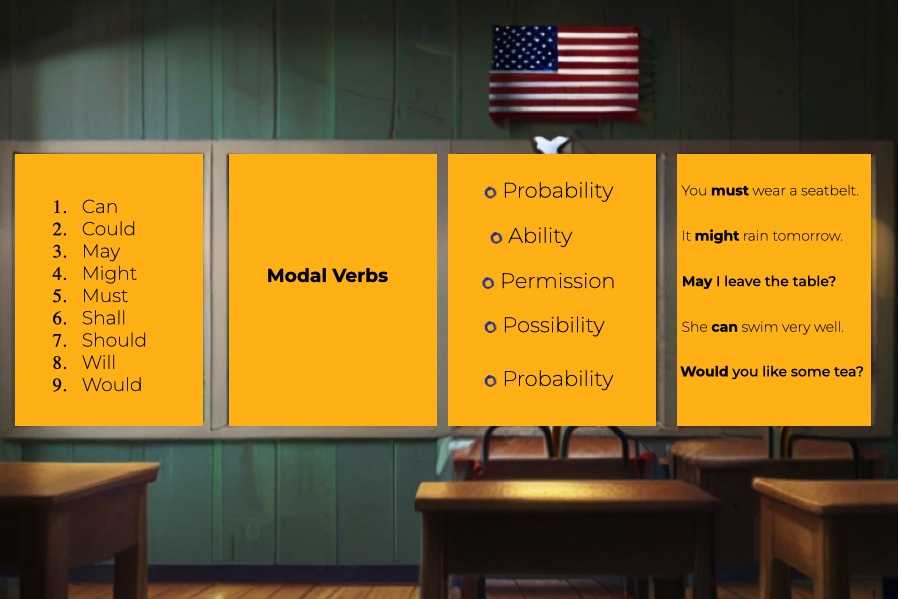Modal verbs are a fundamental part of English grammar. They are auxiliary verbs that express necessity, possibility, permission, or ability. Understanding and using these verbs correctly can greatly enhance your communication skills in English.

What Are Modal Verbs?
Modal verbs are special verbs that behave differently from regular verbs. They are used to indicate likelihood, ability, permission, and obligation. Unlike regular verbs, these verbs do not change their form (they don’t add “s” or “ed”) and are always followed by a base verb.
When Are Modal Verbs Used?
Expressing Ability
Modals like “can” and “could” are used to talk about someone’s ability to do something.
- Example: She can swim very well.
Asking for and Giving Permission
“Can,” “could,” and “may” are often used when asking for or granting permission.
- Example: May I leave the table?
Making Requests and Offers
“Can,” “could,” “will,” and “would” are used to make polite requests or offers.
- Example: Would you like some tea?
Expressing Obligation or Necessity
“Must,” “have to,” and “should” are used to express obligation or necessity.
- Example: You must wear a seatbelt.
Expressing Possibility or Probability
“May,” “might,” “could,” and “must” can be used to express possibility or probability.
- Example: It might rain tomorrow.
What’s your English level?
Discover your level now: A1/A2/B1/B2/C1/C2 and GET your certificate!
List of Modal Verbs
Here are the most commonly used modal verbs in English.
- Can
- Could
- May
- Might
- Must
- Shall
- Should
- Will
- Would
Examples of Modal Verbs in Sentences
Can
- She can play the piano.
- Can you help me with this?
Could
- When I was younger, I could run fast.
- Could you please pass the salt?
May
- May I borrow your book?
- It may snow tonight.
Might
- He might come to the party.
- This might be a good idea.
Must
- You must finish your homework before playing.
- She must be at home by now.
Shall
- Shall we go for a walk?
- I shall return by evening.
Should
- You should see a doctor.
- They should have arrived by now.
Will
- I will call you tomorrow.
- Will you be at the meeting?
Would
- Would you like some coffee?
- I would go if I were you.
Modal Verb Exercises
Test your knowledge with this short quiz. Choose the correct modal verb to complete each sentence.
Questions
- ____ you help me with my homework? (can/must)
- She ____ be very tired after such a long flight. (should/must)
- We ____ go to the beach tomorrow if the weather is nice. (may/must)
- He said he ____ call me later. (will/must)
- You ____ speak loudly in the library. (shouldn’t/can’t)
Answers
- Can
- Must
- May
- Will
- Shouldn’t
Conclusion
Modal verbs are essential in English for expressing various shades of meaning related to ability, permission, requests, offers, obligations, and possibilities. By mastering these verbs, you can communicate more precisely and effectively. Use this guide to help you understand and practice using modal verbs in different contexts.





